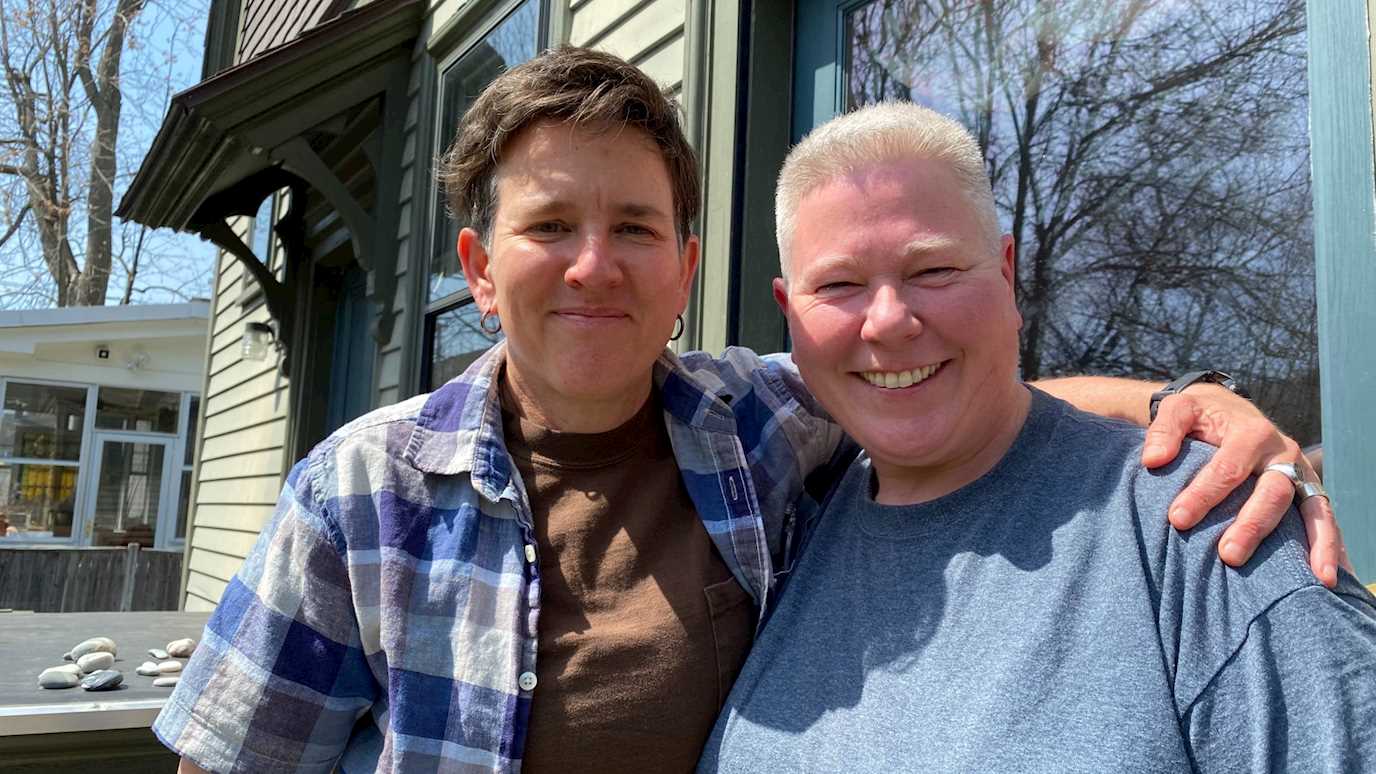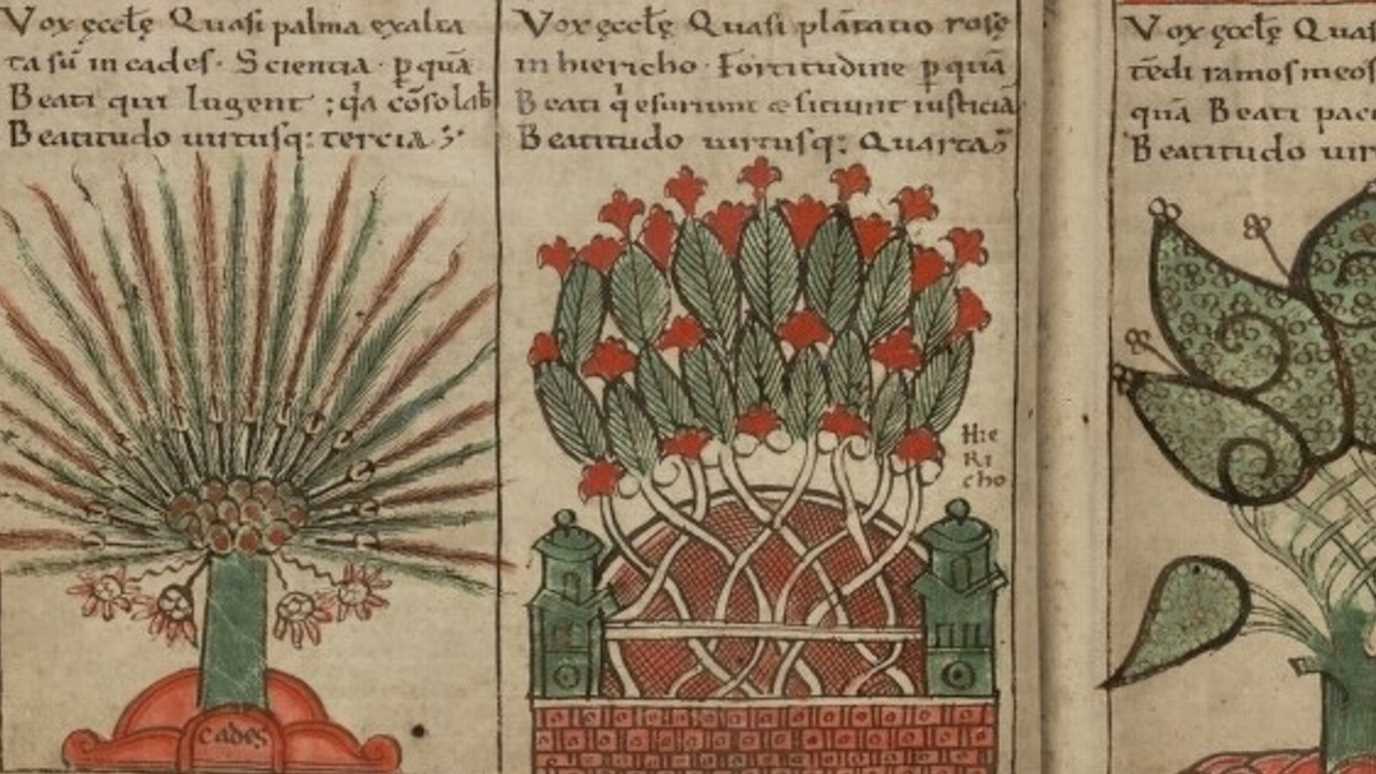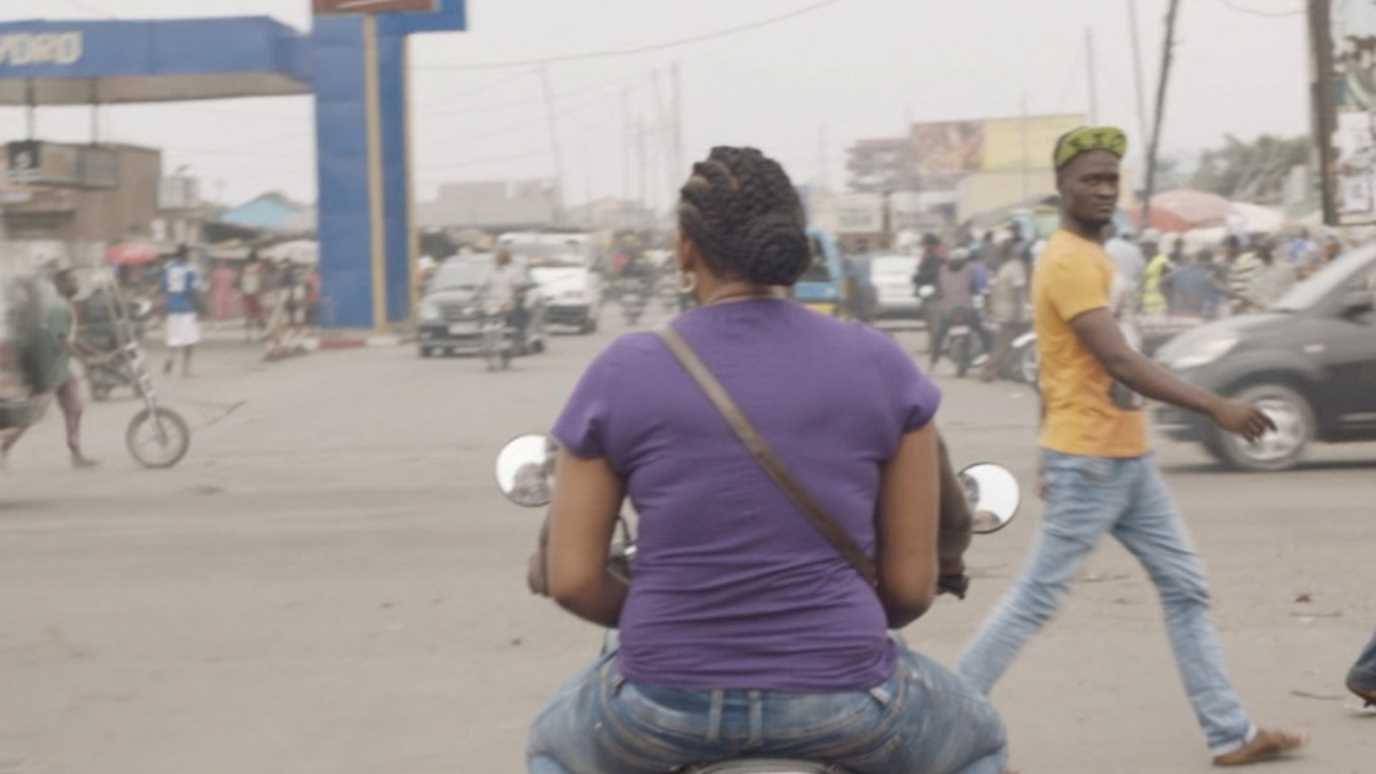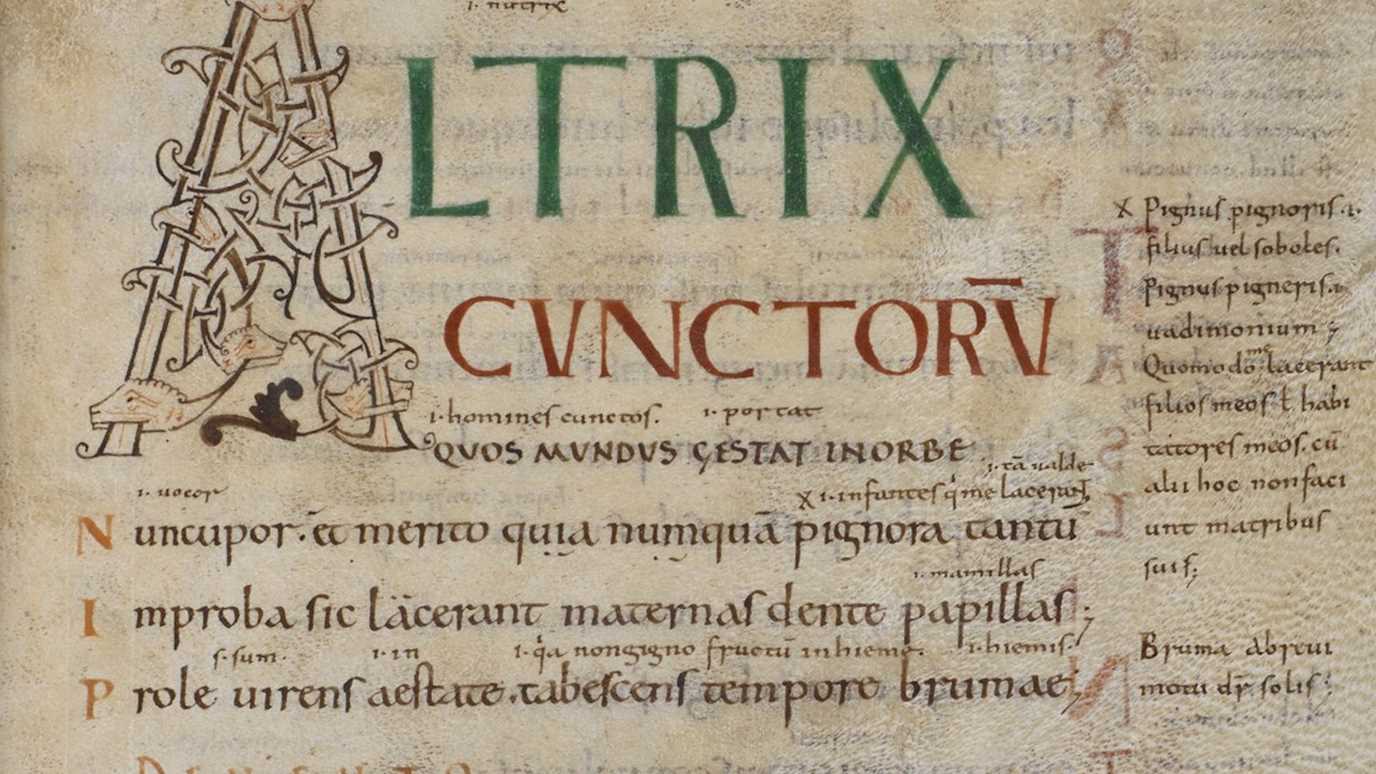We recently spoke to Dr Amy Tooth Murphy, Lecturer in Oral History in the Department of History, regarding her current project on western butch identity. Looking at Britain, Australia, and America she aims to chart lived experience of Lesbians who self-identify as butch in those countries from the 1940s to the present day. ‘Historicising Butch’ aims to explore this identity over time and examine both continuity and change.”

Butch buddies Jen (left) and Shel, on Jen's porch in Providence, Rhode Island © Amy Tooth Murphy
Amy explained how this is a project she has been thinking about in one form or another since her PhD and that she is delighted the British Academy Leverhulme Small Grant Scheme has awarded her a £10,000 grant to cover her research costs. Not only has this award provided financial support, but it also has added validation for this important project. Dr Tooth Murphy explains ‘This is an important piece of work. I knew it was, my queer colleagues also knew. With that funding, it was real validation for this field of research.’
Butch is an identity position within lesbian culture which has been often associated with lesbian bar culture. This identity distinguishes between two lesbian identities which were common in the mid-century: butch represents the culturally ‘masculine’ identity in contrast with a ‘femme’ identity. Such bifurcations served performative functions in lesbian bar culture. ‘Butch was really important for defining who you were on the lesbian bar scene’, Dr Tooth Murphy notes.
In the 1970s and 1980s, butch became vilified owing to an association with masculine hegemony over women. Butch witnessed a resurgence in the 1990s, however as discussions on queer theory and intersectionality arose. Recent debates surrounding gender identity, including transgenderism and interrogation of the dynamic status of gender have brought butch back into the fore yet again in the twenty-first century.
‘Historicising Butch’ seeks to identify the continuities and changes of butch identity from the post-war to the present day through oral history interviews with self-identifying butch individuals. Moving away from its narrow association with bar culture, Dr Tooth Murphy explores the experience of butch identity in daily life. Whilst butch has received some attention in the past, Amy notes that it has not yet benefited from a monograph on the subject. Indeed, where butch identity has been interrogated it has often been used as a way to access wider discussion about lesbian history. Focusing on butch as an identity in its own right, Dr Tooth Murphy seeks to home in on butch identity in the wider context of gender discussions, rather than simply as a lens through which to view these discussions.
Moving beyond interdisciplinary boundaries is key to the success of this project. Highlighting the value of interdisciplinary research, Dr Tooth Murphy suggests: ‘It’s about realizing how to go outside your own box’ to find the stuff that will best illuminate your interviewees’ narratives.’ With her literary expertise, combined with history’s historiography and sociology’s notion of ‘human geography’, Dr Tooth Murphy uses a narrative analysis, employing a close reading of her interviews to identify themes and contextualise experience. Using methods and frameworks from these disciplines (and others) enables Dr Tooth Murphy to produce a detailed picture of butch lived experience.
Importantly, Dr Tooth Murphy notes that she is not interested in capturing a universal identity of butch, but instead in noting how this identity has been useful to people in different times and aspects of life. This project, and the book which arises from it, will intervene in current discussions about gender by locating butch as part of the spectrum. As Amy explains:
‘What I’m curious to look at is to position butch in that spectrum of masculine forms of assigned female at birth identity. Whether that’s people who used to be butch and now identify as trans or those who used to be trans and now identify as butch, that spectrum and messiness is something I’m keen to get into.’
Dr Amy Tooth Murphy was interviewed by Angela Platt, a PhD student in History and Engaged Humanities Officer.























